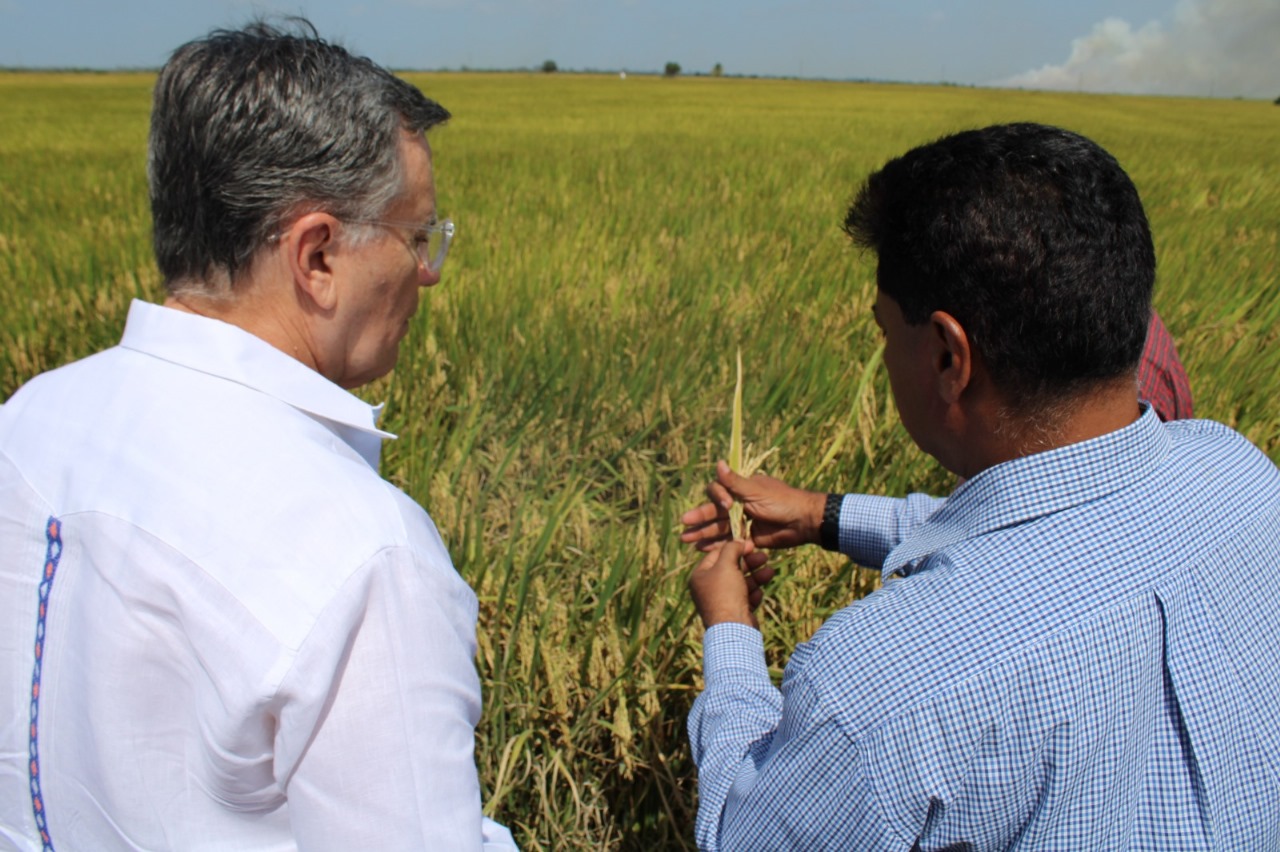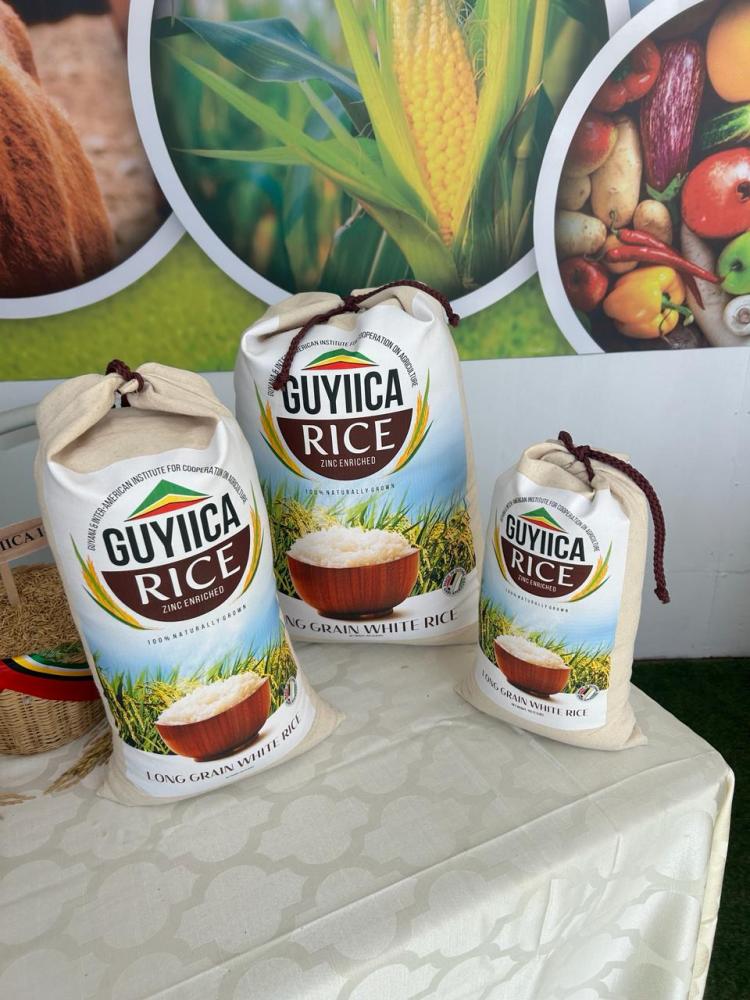During Dr. Otero’s visit to Georgetown, both Minister Mustapha and President Ali congratulated IICA for its contribution to this development, which strengthens the position of Guyana, a country that is making an effort to grow and sustain its agriculture and intends to be self-sufficient in commodities such as corn and soybeans by 2026.

Georgetown, 21 March 2024 (IICA) – After more than three years of joint scientific research and experimentation, the Government of Guyana and the Inter-American Institute for Cooperation on Agriculture (IICA) have developed the region’s first biofortified rice variety, which is an extremely important contribution to the country’s food and nutrition security and can be extended to the entire Caribbean region.
This rice variety, whose nutritional richness is based on high levels of zinc, was launched in October 2023 with the participation of Guyana’s Prime Minister, Brigadier (Ret’d) Mark Phillips, and the Minister of Agriculture, Hon. Zulfikar Mustapha. It is already being produced in Guyana on a small scale and is expected to make a significant contribution to the development of the country, which along with the rest of the Caribbean nations has set itself the goal of reducing its food imports by 25% by 2025.
The Director General of IICA, Dr. Manuel Otero, who is on a working visit to Georgetown, the country’s capital, was received by President Mohamed Irfaan Ali, toured the facilities of one of the experimental stations of the Guyana Rice Development Board (GRDB), semi-automous agency under the Ministry of Agriculture that researches the adaptability of different varieties to the country’s environments, the Americas, which provided technical and financial support to rice producers.
“The next goal is to start producing this variety on a large scale, so that Guyana can have rice with this food as a healthy supplement. In this way we will be able to increase not only the income of our farmers but the health of our people in the country and the rest of the Caribbean,” said Minister Mustapha.
During Dr. Otero’s visit to Georgetown, both Minister Mustapha and President Ali congratulated IICA for its contribution to this development, which strengthens the position of Guyana, a country that is making an effort to grow and sustain its agriculture and intends to be self-sufficient in commodities such as corn and soybeans by 2026.
The joint work of the GRDB and IICA was the result of a special request from the Caribbean Community (CARICOM), a union of countries that is committed to strengthening the resilience of food production in the region, which has been severely affected by the increased frequency and intensity of extreme weather events. as a result of climate change.
High agricultural yields
As explained, GRDB IICA-17 biofortified rice has high yields of up to 8 tons per hectare and can be sold at better prices for the benefit of farmers. It was developed through conventional farming practices, without genetic modification, as rice naturally accumulates higher levels of zinc than usual. Zinc is essential for the proper functioning of people’s immune systems and the fight against infectious diseases such as Covid-19.
There are currently about 600 hectares (1450 acres) in Guyana under biofortified rice production, and part of the harvest will be destined for Trinidad and Tobago and Jamaica, in the Caribbean region, and Spain and Portugal, in Europe, at a differentiated price, according to the IICA Representative in Guyana, Wilmot Garnett. “We are working with specialists to explain the benefits of this variety for nutrition and human health, in order to develop an adequate information and promotion strategy,” he added.

Garnett revealed that the proposed goal is that within two to three years biofortified rice will constitute 50% of the country’s total production of rice, which is a fundamental and daily food on the table of Guyanese and all inhabitants of the Caribbean.
The introduction of biofortified rice is expected to have a major impact on Guyana’s agriculture and economy, thanks to its superior nutritional intake that will make it an attractive option domestically and also in international markets.
Minister Mustapha stressed that it is also a tool to meet the challenges of climate change, as it has greater resilience to adverse weather conditions.
More information:
Institutional Communication Division.
comunicacion.institucional@iica.int











